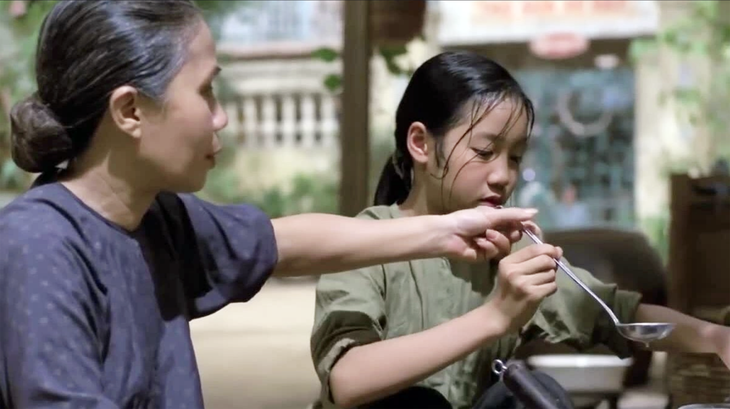
The Scent of Green Papaya marks a Vietnamese film that has made it to the world's biggest film festivals.
The international scientific conference "Literature and art of Vietnamese people abroad after 50 years of national unification, innovation and development" (1975-2025) organized by the Central Theoretical Council took place on the afternoon of April 28 in Hanoi.
From the sadness of exile to the voice of flesh and blood
Prof. Dr. Nguyen Xuan Thang - Director of the Ho Chi Minh National Academy of Politics, Chairman of the Central Theoretical Council - affirmed that Vietnamese literature and art today have an important part.
It is the rich and unique literary and artistic activities of our overseas Vietnamese. This is a "cultural window", opening up to the world a view of the identity, soul, intelligence and aspirations of the Vietnamese people.
Mr. Thang noted that in the early stages after the large migrations, the dominant mood in the literature and art of Vietnamese people abroad was the lingering sadness of being away from home and the feeling of exile.
The first generation of artists and writers were often burdened with homesickness and a sense of loss and alienation in the new society. Their works contained personal sorrow and became symbols of a scattered community.
Because of the perspective, position and feeling of being in a foreign land, some works have generalizations, extreme, one-sided and ill-intentioned comments. However, over time, this mood has changed dramatically.
The second and third generations of artists - those born or raised in multicultural environments - bring a new sense of emotion and creative energy, a desire to connect with their homeland, and an active search for national identity.
Many artists have proactively put aside the haunting past to look to the future, emphasizing the desire for national reconciliation and healing historical wounds. Many new works have emerged, gently but deeply telling stories of overcoming, healing and hope; searching for common human values, of love and peace.
"It is necessary to affirm that Vietnamese artists and intellectuals abroad have made significant contributions to the unity and diversity of the country's literature and arts," said Mr. Nguyen Xuan Thang.
He affirmed the Party and State's policies on national reconciliation, harmony, national unification, and great national unity; considering overseas Vietnamese as an inseparable part of the Vietnamese ethnic community; considering the literature and art of overseas Vietnamese as an inseparable part of the country's literature and art. All for the highest goal of a rich people, a strong country, democracy, fairness, and civilization.
Vice President of the Central Theoretical Council Nguyen The Ky said that many famous Vietnamese artists abroad, after many years away from home, have wished to return to their homeland, such as Professor Tran Van Khe, sculptor Diem Phung Thi and many others...
Overseas cinema and music make great contributions
In the field of cinema, Dr. Ngo Phuong Lan affirmed that in the past few decades, since the country entered the renovation and opening up, besides the mainstream domestic flow, there has also been a flow of Vietnamese directors abroad and Vietnamese directors returning to Vietnam to make films, making great contributions to Vietnamese cinema.
Some films by Vietnamese directors have been successful at international film festivals and widely released in many countries, such as The Scent of Green Papaya, Cyclo by Tran Anh Hung, Three Seasons by Tony Bui, Buffalo Len Mua by Nguyen Vo Nghiem Minh, Pink Dust and The Distant Times by Ho Quang Minh.
Recently, Tran Anh Hung's Muon Vi Nhan Gian and Pham Thien An's Ben Trong Vo Vang Cocoon achieved great success at the 2023 Cannes Film Festival.
Along with that is the film genre of Vietnamese-origin people returning to Vietnam such as Luu Huynh, Charlie Nguyen, Victor Vu, Dustin Nguyen, Ham Tran, Ngo Thanh Van... There was a time when films by Vietnamese-origin directors made up a very large part of the Vietnamese cinema picture.
There were years when films by Vietnamese directors dominated domestically produced films and were also more successful in terms of revenue, bringing a new breath to Vietnamese cinema.
In recent years, films by Vietnamese directors have not dominated the Vietnamese film scene and there are not many films that are successful in terms of both revenue and artistic quality.
But the emergence of a new wave of Vietnamese directors abroad is something to look forward to. According to Ms. Lan, we should attract many talented Vietnamese living abroad to work in culture and cinema.
Regarding music, speaker Nguyen Thi My Lien (Saigon University) cited the cases of musicians Nguyen Thien Dao, Ton That Tiet... to affirm the great contributions of musicians in promoting Vietnamese traditional culture and arts to the world.
Translated from Nguyen Huy Thiep to Nguyen Thi Dinh's memoirs
Speaking about Vietnamese literature in the US, Associate Professor Dr. Tran Le Hoa Tranh (Ho Chi Minh City National University) affirmed that over the past decades, Vietnamese writers in the US have made many contributions to Vietnamese literature in general.
Since the mid-1980s, when the wind of Renovation appeared, cultural and literary exchanges between Vietnamese writers at home and abroad began to flourish, and writers of Vietnamese origin began to translate works by Vietnamese writers into English.
Names like To Thuy Yen, Doan Quoc Sy, Mai Thao, Cung Tram Tuong, Vo Phien, Nguyen Xuan Hoang, Du Tu Le, Trung Duong, Nha Ca, Nguyen Mong Giac... have continued and preserved the literary achievements of the South abroad.
And over time, Vietnamese American writers have contributed to introducing Vietnamese culture and life to the host country; supporting the integration process of Vietnamese people in the US; developing a new generation of Vietnamese writers; introducing and translating Vietnamese literature in the US.
After the US lifted the embargo, the "convergence" between writers of Vietnamese origin and Vietnamese writers increased, the younger generation traveled to Vietnam more and more, and it became easier to meet writers in Vietnam. In 1995, a collection of post-war short stories by American and Vietnamese writers translated into English by Truong Vu and Wayne Karlin was published.
In 1996, Dinh Linh organized the translation of a collection of contemporary Vietnamese short stories called Night, Again. Dinh Tu Bich Thuy and Martha Collins translated the poetry collection Green Rice by Lam Thi My Da. Nguyen Quy Duc and John Balaban translated and published stories by Ho Anh Thai, Nguyen Quang Than, Le Minh Khue... in 1996. Ngo Vinh Hai, Nguyen Ba Chung, Kevin Bowen and David Hunt translated Le Luu's Time Away in 1997. Duong Van Mai Elliott translated Nguyen Thi Dinh's memoirs. In 2008, Andrew X. Pham, with the help of his father, translated Dang Thuy Tram's Diary into English under the title Last Night I Dream of Peace...
Nguyen Nguyet Cam and Dana Sachs translated a selection of Vietnamese folk tales and Nguyen Huy Thiep's short stories. She also translated Vu Trong Phung's So Do with her husband, history professor Peter Zinoman...
And the translation of The Tale of Kieu by Huynh Sanh Thong (1926 - 2008) is the most used in universities in the US.
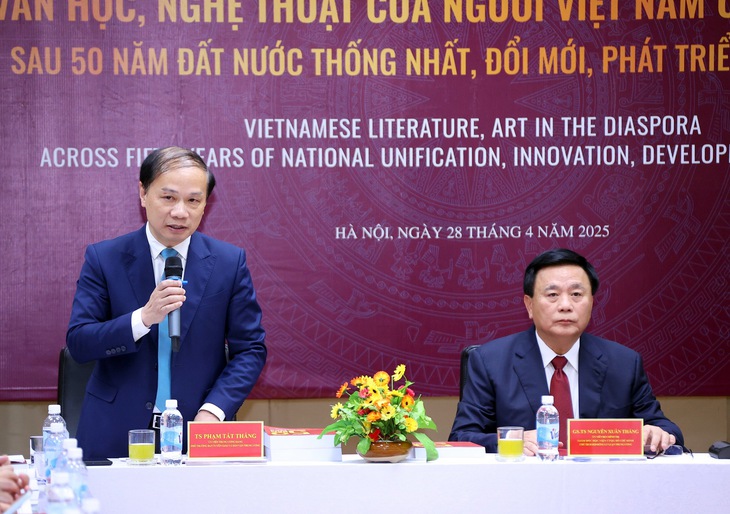
Dr. Pham Tat Thang - member of the Party Central Committee, Deputy Head of the Central Propaganda and Mass Mobilization Commission - speaking - Photo: VNA
Dr. Pham Tat Thang - Deputy Head of the Central Propaganda and Mass Mobilization Commission - concluded the workshop, saying that scientists and artists at home and abroad are all excitedly awaiting this event - the first official event of a Party theoretical agency dedicated to Vietnamese literature and art abroad.
All are Vietnamese citizens
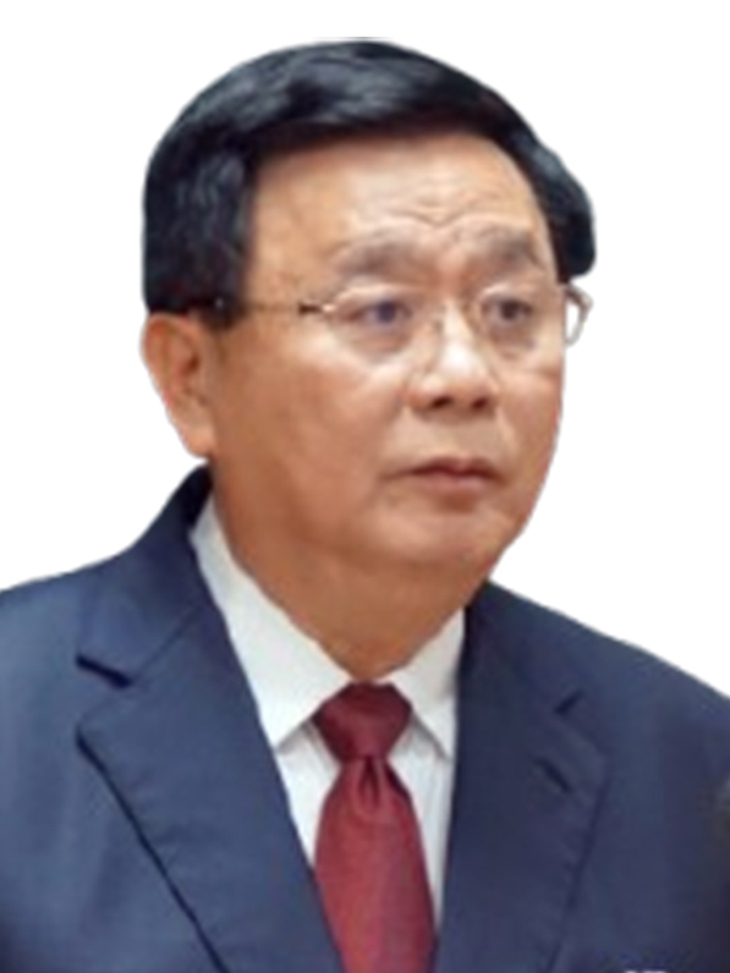
Mr. Nguyen Xuan Thang cited a recent article by General Secretary To Lam "Vietnam is one, the Vietnamese people are one", affirming: all Vietnamese people, whether at home or abroad, regardless of which side of history they have stood on, all share the same origin, the same language, and the same love for their homeland.
There will be no more inferiority complex about people on the "other side" but all are "Vietnamese citizens", "children of Lac, grandchildren of Hong".
Mr. Thang emphasized that literature and art need to become symbols of heart-to-heart connections for millions of Vietnamese people in the country and around the world.
Source: https://tuoitre.vn/van-hoc-nghe-thuat-hai-ngoai-cung-la-mau-thit-cua-dan-toc-20250429094031352.htm







![[Photo] Prime Minister Pham Minh Chinh chairs conference on anti-smuggling, trade fraud, and counterfeit goods](https://vphoto.vietnam.vn/thumb/1200x675/vietnam/resource/IMAGE/2025/5/14/6cd67667e99e4248b7d4f587fd21e37c)

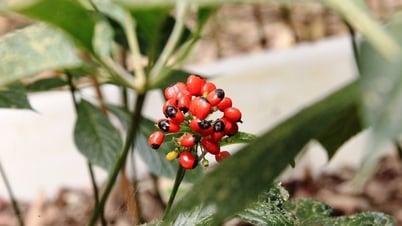

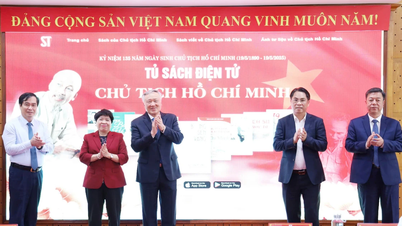
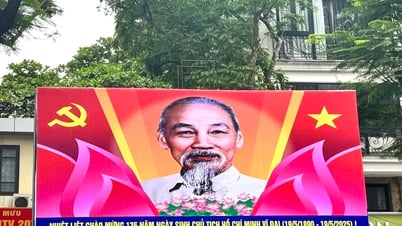




















































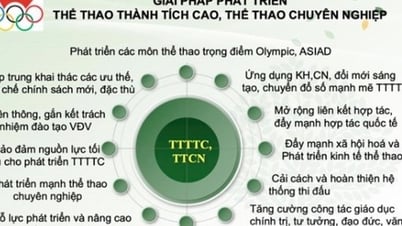





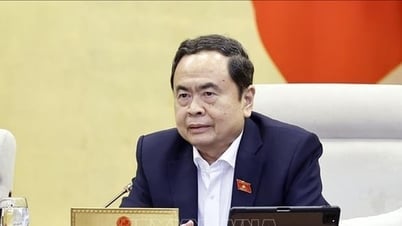



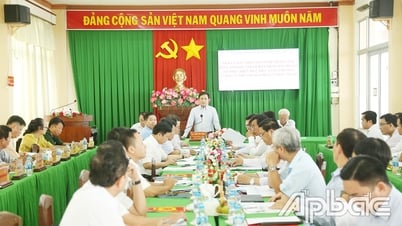



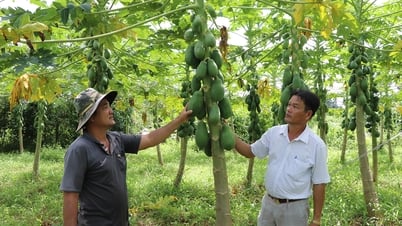
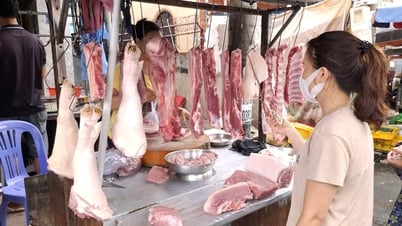








Comment (0)